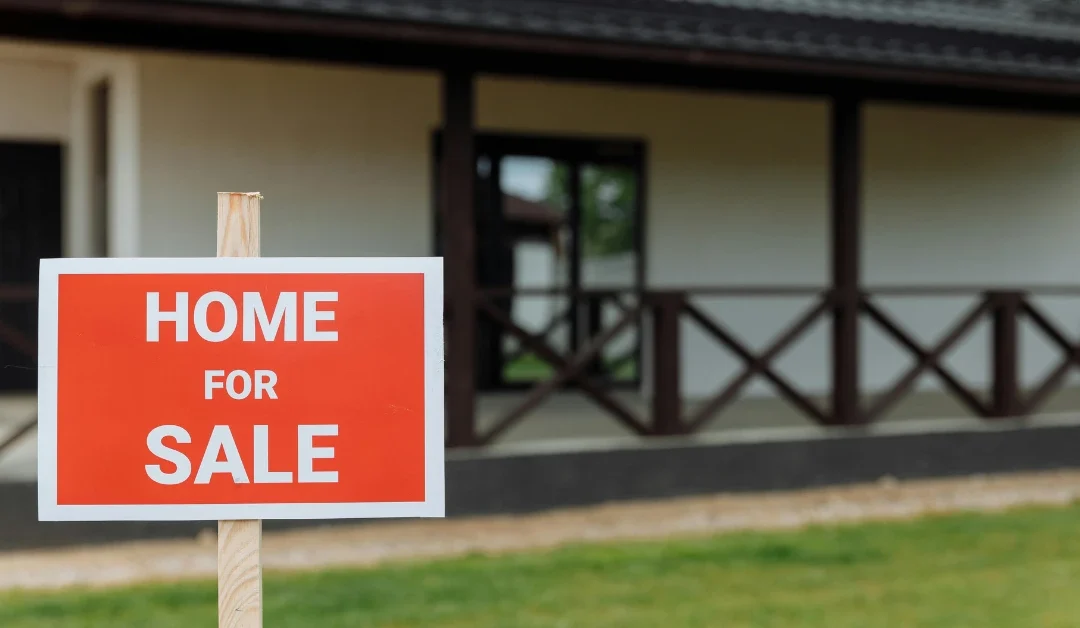Want to start a real estate investment business? Then you’re in the right place.
As a real estate investor who started from scratch and scaled to seven figures, I’m here to tell you that getting into real estate can be highly profitable IF you do it right.
In this article, I’ll cover exactly how you can start your own investment business so you can do things like…
- Quit that boring 9-5 you don’t love
- Build financial security for yourself and your family
- Travel whenever you want without having to ask for time off
I know all of these things are possible because I’ve done them myself.
Want the same?
Then, let’s get into the details.
Key takeaways:
- Types of real estate investment businesses include renting, wholesaling, flipping, and developing
- Starting a real estate investment business requires taking steps like securing financing, developing a business plan, and managing your properties
- Financing options include REITs, partnerships, and crowdfunding
Types of real estate investing companies
Before I talk about the benefits of starting a real estate investment company, here’s a quick overview of what types of companies you could start within the real estate niche.
Rentals
With the rental model, you’d buy properties and rent them out to long- or short-term tenants. And though this may seem like a niche in and of itself, it’s actually pretty broad.
For example, you could rent commercial properties to businesses or opt for residential housing and rent to tourists, working professionals, college students, etc.
I’m biased about this option because it’s what I do myself: I rent by-the-room to college students, which helps maximize my investment returns. More on that here.
Wholesalers
As a real estate wholesaler, you’d find properties in rough shape, put them under contract, and transfer them to other investors ready to take on a fixer-upper.
You’d make money through the wholesale contract fee, which can be a cut of the property’s value (usually 5% or 10%).
Flippers
Flipping houses involves buying properties that need renovating, fixing them up, and reselling them for a profit. The goal is to do so quickly to maximize profit.
Developers
Real estate developers are in charge of finding real estate projects and overseeing new building developments.
As a developer, you’d also be responsible for getting financing from investors or lenders to fund the developments, and your income would come from the profits.
Alright, so we’ve looked at what types of companies you could start. Now, let’s look at what you could gain if you started a real estate investment business.
Benefits of starting a real estate investment company
Here are my top reasons why having your own business as a real estate investor is a smart move:
- Diversified income streams: Having multiple income streams through your investments allows you to spread out risk, giving you more financial security.
- Property appreciation: Over time, properties you own can go up in value (even without renovations) because of changes in the neighborhood, market swings, etc. This puts more money in your pocket without you having to do anything to earn it.
- Tax benefits: When tax season rolls around, you can save a lot of money by owning real estate investments. For example, you can write off investment-related expenses like repairs, maintenance, business advertising, business-related equipment, and more.
- Limited personal liability: If the worst-case scenario happens and you lose your business, having an LLC means you won’t be personally liable for paying back any debts tied to your company.
- Control over how you run your business: When you’re a business owner, you get to call the shots. For example, if you want to take time off or outsource certain tasks to a freelancer, you can do so without having to ask a boss first.
Okay, now that you know the benefits of having your own investment company, let’s answer an important question…

How to start a real estate investment company?
While there are many things you can do, I don’t want you to get overwhelmed. So, here are ten steps you can use to maximize your results.
1. Conduct market research and find your niche
As I touched on earlier, there are a lot of sub-niches within real estate. So, the first thing to do when you want to start an investment business is to identify a profitable niche in YOUR area.
For example, as I mentioned, I invest in student housing.
That means when I’m looking for good properties to buy, I only look at houses within easy distance of colleges or universities because I know my ideal tenants will want to be near their schools.
The same concept applies to any niche: understand what your target market is looking for so you can successfully fill that need.
Ask yourself, “Do I want to invest in short or long-term rentals? Commercial real estate? House flipping?”
Once you know what kind of investing you want to do, check market trends to confirm that you’ve made a good choice.
I cover how to analyze a deal in this video:
2. Obtain the necessary education and certifications
If you’re a complete real estate newbie like I was, learn about the kind of investing you want to do before getting started. These days, there are plenty of ways to learn:
- You can take a course,
- Get certified
- And find a coach
Looking back, I realize I could have saved myself tens of thousands of dollars if I had taken the time to learn before jumping in.
And that’s where getting a real estate coach who knows what they’re doing can be a huge help. Instead of doubting yourself and staying stuck, you can learn from someone who was once in your shoes.
3. Secure financing
How much funding do you need? And how are you going to fund your real estate investments?
You have a few options here, like:
- Getting loans
- Asking private investors for support
- And using your personal savings, which is what I did
After graduation, I worked two jobs and saved as much as I could to afford the biggest possible down payment on my first investment property.
But again, using personal savings doesn’t have to be what you do. More on that here:
4. Develop a business plan
Here are a few key things you should figure out:
- What your investment strategy will be
- How you’ll market your business
- Your financial projections
- How you’ll manage risk
By developing a business plan before starting your business, you’ll be setting yourself up for long-term success. Don’t skip any of these steps, but especially don’t skip this one.
5. Establish a business entity
What kind of business do you want to start? For example, you could be a sole proprietor or establish an LLC. Each has advantages and disadvantages, which you can look at here.
Pro tip: if you have any legal questions about your business, ask a lawyer for help to be on the safe side.
6. Open a business account
When you start a business, it’s important to have separate bank accounts for your business and personal expenses. That way, it’s much easier to keep track of cash flow and have financial records to refer to later.
7. Search for investment properties
How can you figure out if a property would be a good investment or not?
One way is by running comparables. That means comparing similar properties to the one you’re interested in to see if the selling price seems high or low.
To do this effectively, I recommend using a tool like Zillow to compare properties within the same neighborhood and have similar features (square footage, number of bedrooms/bathrooms, etc).
Then, filter by recently sold listings. That’ll give you a better idea of what the going rate for similar properties is.
Once you know what a property is worth, you’ll be in a strong negotiating position to buy at a good price or walk away and find a better deal elsewhere.
For more on how to create a winning offer, check out this video:
8. Market your business
There are plenty of ways to market your real estate business.
For example, if you offer rentals to college students like I do, you’ll want to advertise on local campus bulletin boards, in coffee shops, bookstores – anywhere potential tenants would go.
You can also host events, like giving out free ice cream to students who refer their friends who are looking for housing.
I also recommend using property sites, like Avail and TurboTenant, to broaden your reach.
Want more ideas? Check out my student housing marketing article here.
9. Manage your properties and clients
If you choose a real estate business model that involves buying properties and renting them out, make sure to offer your tenants a great experience.
And look, that doesn’t mean being a doormat and saying yes to unreasonable requests. But it does mean treating renters with the consideration you’d show to friends or colleagues.
To simplify things, you can use software to streamline operations and keep track of rental income, expenses, communicate with tenants, etc.
Pro tip: I use what I call “tenant empowerment” to reduce my involvement in my rentals while still giving my tenants the solutions they expect.
So, here’s what that looks like: if there’s a leak in my tenant’s bathtub, tenant empowerment means that instead of calling me, my tenants know they can call the plumber directly.
That way, they get the issue fixed much faster without the middleman (me).
Remember, offering excellent customer service isn’t about working 24/7. It’s about anticipating needs and giving people solutions.
If your tenants have a positive experience staying in your properties, they’ll want to renew their lease and tell their friends about your rentals. The result is less work and more income for you.

10. Scale your business
Over time, you may decide to scale your business. To do that, I recommend reinvesting your rental cash flow so you can finance additions to your portfolio.
That’s what I did.
And over a few years, those investments added up and I was able to retire in my early thirties with a real estate portfolio worth seven figures.
But again, that’s just what I did. You can take more time to scale and still be successful.
Alternatives to real estate investing companies
What if you don’t want to start a real estate investment business? In that case, you have a few other options:
- REITs: real estate investment trusts (REITs) allow you to invest in real estate without having to buy or manage the properties yourself
- Crowdfunding: with crowdfunding, you can raise money from a large group of people to fund real estate investments
- Partnerships: as a partner, you could join forces with another real estate investor to make it easier to invest
Now, let’s look at some additional questions you and others might have.
FAQs about starting a real estate investment company
How profitable is real estate investing?
Real estate investing can be highly profitable. For example, I earn almost $2,000 per month in cash flow from just one of my rental properties and about $35,000 per month overall.
How much money does it take to start a real estate investment company?
You can start a real estate investment company with no money down by creating a partnership. Here, your partner funds the project, and you manage it. That way, you can get started for free, and your partner doesn’t have to put up the money and run things alone.
What is the 2% rule in real estate?
For profitability, the monthly cash flow on an investment property should be at least 2% of the purchase price. So, for example, you should be bringing in $2,000 per month for a property that costs you $100,000. Following that rule is up to you, but you should still ensure your monthly cash flow is keeping you profitable.
Next steps
Okay, there you have it! Now you know exactly how to start a real estate investment business to set yourself up for success.
As I said, I was once in your position, thinking about investing in real estate but not sure how to start.
If that’s you, reach out, and let’s create a plan to help you get the results you want.


